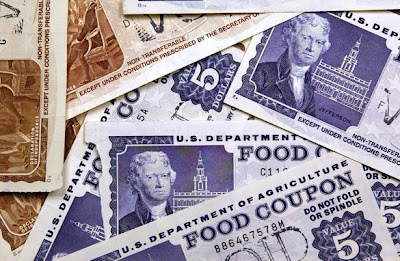Arguments against the concept include inequality, environmental impact, sweatshops, cultural normalisation, dumbing down through uniformity etc....
However for the majority first world perspective, it has facilitated a perceived rise in standard of living, choice, cheap food, goods and services. All this has become possible through communication advances in interconnectivity across the globe. The whole ponzi scheme is clearly based on convincing people to buy loads of tat that nobody really needs and only really want on the basis of its easy availability, brand marketing brainwashing techniques, availability of cheap credit etc.....
During the 'good times', this interconnectivity offers a dumbed down feeling of well being; an increased happiness quotient and an illusion of being able to buy freedom.
This model is so new that it has never been tested during the bad times.
What could happen if things went bad in the Global Village ? :
Firstly the connectedness of world financial markets means that if an economic boom or bubble emerged, the whole connected world would feed this bubble. This bubble would become bigger than any bubble experienced in the post industrial revolution period.
This bubble could for instance be cheap credit.
The banks may push the envelope by lending to riskier borrowers. They might even lend large sums to people who would have no means to repay.
The bubble might only stretch so far due to finite limits.
A nervousness might set in.
Banks might feel twitchy about the amounts on the wrong side of their balance sheets.
As if by magic the debt has moved from personal loans to private company debt.
They might stop lending to each other.
Credit availability may stall.
Some banks might fail.
Governments might have to rescue banks using hundreds of billions of taxpayers monies. Government might be forced to nationalise banks. In other words Governments would be nationalising debt and privatising profit.
As if by magic the debt has been moved again. From private companies to the public purse.
This might be called sovereign debt.
Interest rates may have to be slashed.
This could cause cash flow problems further down the food chain.
Businesses, large and small, could fail because their creditors refuse to supply goods and services on existing credit length terms.
Unemployment could rise.
Government spending could rise due to increases in benefits, lower taxation revenues, bank bail-outs.
Banks could restrict mortgage lending.
House prices could fall.
Economic growth might fall.
There could be a recession.
Entire countries could get nervous. They might feel that other countries may default on their debts.
They might buy the debt in form of government bonds at higher interest rates.
Their debt to earnings ratios might rise.
Their bond yield spreads might rise.
They might have to print more money.
Their currency may have to be devalued if it has its own fiat currency.
Other countries may drive down the value of their own currencies in order to maintain an export trade advantage.
A currency war could cause uncertainty in equity markets.
Financiers might switch to gold, looking for a perceived safe haven.
A secondary gold market may emerge. There could be high street gold buying shops. There may even be TV ad campaigns asking people to send their jewellery in the post in exchange for cash.
Gold prices could rise five fold or ten fold or ......
A secondary commodities bubble could emerge.
Agricultural commodities could get caught up in this speculative market. As could fossil fuel commodities.
Food and energy prices could be driven higher.
Governments may feel pressurised to accept rescue monies from other countries. There may be strings attached.
Those strings might be an austerity program.
That program may be painful to everyone living in that country.
They may have to take pay cuts.
They may have to cut millions of jobs in the economy.
There could be civil unrest, demonstrations, protests and even riots.
The government's revenues might fall again due to even lower tax revenues.
Economic growth may fall again.
Other countries may begin to falter.
The contagion could spread like a fire.
Firstly it could just be a few kindling republics and small countries.
Then maybe some larger countries may be affected due to their trading reliance with that failed country.
Recessions could turn into depressions.
And then..................................Protectionism.... Hyperinflation.........Nationalism.........War
Sound familiar ?
GLOBALISATION ! Forget the old arguments. THINGS HAVE MOVED ON !
